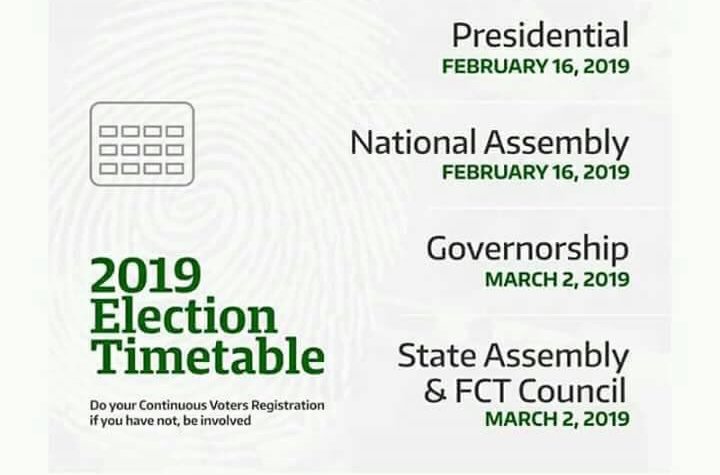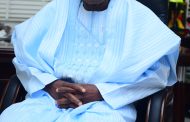Friends, followers and faithfuls will join over 50 political personalities who begin a three month long campaign today to be elected as president of Nigeria next February. Beyond the 50+ presidential candidates are hundreds of others seeking election/re-election into one or the other of the chambers of the national legislature. Money, intrigue, deception, blackmail and brutality will define the campaign in a way that might not have been seen before. Nigerian politics is hardly about any values as much as about the worst excesses of the Machiavellian ethic. This has been to the extent that a governor advocated the return of the British shortly before the collapse of the Second Republic to a coup. It was his own way of saying there has not been much to choose between the colonialists and their indigenous successors. Such a position will remain a very controversial one between its protagonists and antagonists in Nigeria but there is no doubt about it that excellence in governance has eluded politics in Nigeria. Will the struggle for power in 2019 be any different?

President Buhari stepping out Sunday evening, Nov 18th, 2018 with an account of his first 4 years in power and the justification for another term of 4 years

Atiku’s 63 page statistically loaded but managerialist narrative of his presidential bid billed for launching tomorrow, November 19th, 2018
The Christian Association of Nigeria, (CAN), for instance, is not comfortable with existing service chiefs superintending the conduct of the election. The Sultan of Sokoto, Abubakar Sa’ad 111, said recently that everything is not okay in Nigeria. A consensus can be inferred to exist to the effect that if Nigeria is not careful, if those who exercise authority at whatever level are not vigilant, something disastrous could happen. The question is, what is the problem?
As is usual, there are never problems in themselves. Problems become problems depending on how they are spoken of. That has landed Nigeria in two dominant discourses of the problem. One says the problem is that corruption is fighting back by creating problems for the Buhari regime so as to alienate it and make it unpopular for re-election. President Buhari himself leads this construction by saying that it is those he has blocked their ways of siphoning Nigeria’s resources who are on warpath, organising renegade killers across the Middle Belt in particular.
The counter discourse is that the president is himself the problem by being such a deeply and sectionally minded president; by being totally incapable of reining in renegade killers (irrespective of who might have sponsored them); by his prosecution of a war on corruption that the critics see as directed at political enemies.
There is a completely different set of critics who see the gravest shortcoming to be the ‘silence’ of Mister President on his conception of the system he is so enthusiastic to correct. In other words, they mean that Buhari’s grand narrative of the Nigerian political economy is missing. Without such a narrative, it means the president has no problems with the system in place. If anything, he only has problem with specific manifestations of the system such as corruption. At a time Nigerian capitalism is being described as the most unproductive in the world or as being fundamentally extractivist, violent and criminal, many are prepared to say that this ‘silence’ is Buhari’s gravest self-disqualification because it speaks to conceptual dryness and/or ideological incoherence. It is worsened by the fact that there has also been no one in the entire cabinet that could speak to the issue and close the gap. It has meant a pilot flying a plane without a compass or whatever it is that pilots use.


A country begging to be more critically problematised by her own leaders than outsiders doing a sharper and better job of that
This is the context in which the campaign is kicking off. It is underpinned by the Buhari logic of governance and the divide it has created: those for and those against. The situation, therefore, differs widely from 2015. In 2015, the great expectations in relation to the Buhari candidature were someone who would ruthlessly apply a moral rulebook so as to sanitise a society that has gone totally lawless to the point of threatening collective existence; recover stolen public resources, bloody the nose of Boko Haram in a lightening military operation and correct the impression that there was a grand plan to keep the north out of power in the Fourth Republic. Except the last item about correcting an impression gaining ground then, all the other three great expectations are now subject of intense contestations in the media.
It is the contestations that have produced an opponent. It happens that the opponent is Atiku but it could have been anybody whose politics is seen to be the opposite of Buhari’s by the president’s critics. And that is why Atiku is posed as a potential exemplar in terms of satisfying what the nation is perceived to need most now – unify not only the power elite and save the nation from the usual convulsions that follow elite fragmentation but also run a more inclusive governance. Of course, like Buhari, there is also a contending image of Atiku as the corrupt, Machiavellian archetype who will sell Nigeria and make away with the proceeds. In fact, so circulated already is this image and in response to which the ‘Onochie syndrome’ is also already in place. ‘Onochie syndrome’ is the temptation to go beyond labelling to declaring Atiku’s presidential bid as a dream that “won’t happen”. That is the October 21st, 2018 communication by Lauretta Onochie, a presidential aide to Mister President, a statement which Mister President has himself echoed. The positive self versus negative other in that statement is not part of campaigning but fundamentalism, with implications far, far beyond Atiku.
Atiku is still the unlikely hero in Nigerian politics for many people to this moment, annoying many more by talking casually about privatising mega symbols of collectivism such as the Nigerian National Petroleum Corporation, (NNPC). It is the Buhari regime that keeps widening his chances till it is reaching a point the regime is finding it threatening and hence the resort to this sort of disturbing statements. Of course, it is disturbing because every framing implies its own prescription. By the structural, institutional and coercive balance of forces in favour of a sitting Commander-in-Chief, the prescription implied must be obvious to anyone thinking.
But a campaign involving 56 presidential candidates seeking electoral confirmation from 200 million citizens should provide intense engagement with the soul of Nigeria, witness banners of hope raised by fertile minds, not bitter, sneering disposition between and among contestants or contempt for the citizens. Who will compel the candidates to stay on course? Which interest group in or outside Nigeria can force a deeper and more transformative critique of the nature of Nigerian capitalism. That is the question nobody is addressing YET, neither the broader civil society nor its specifics such as the media, labour, intellectuals. And certainly not the military, patriotic business men and women, the broader private sector, the traditional elite and the agrarian bourgeoisie. The technocratic bourgeoisie which used to be the policy hub especially between 1970 and 1979 appear to have been permanently obliterated, especially by the Murtala/Obasanjo purge. Without elite universities, their types are no more being produced anyway. What a national fate!



























